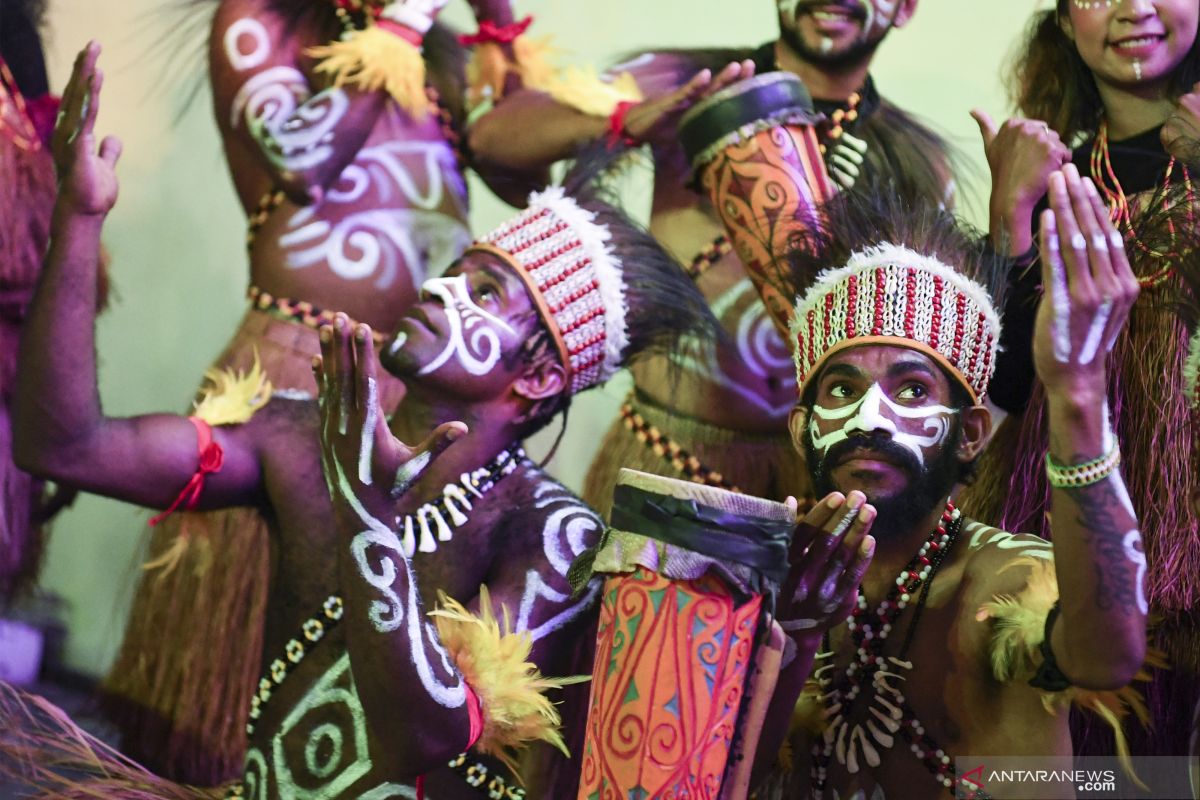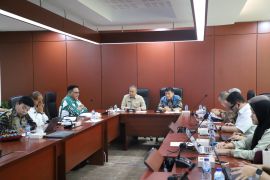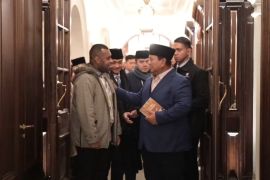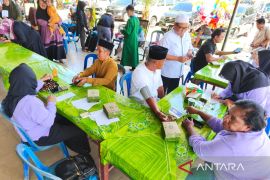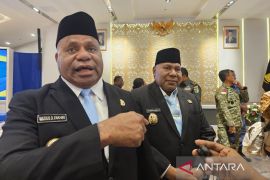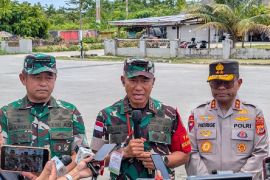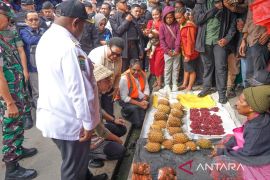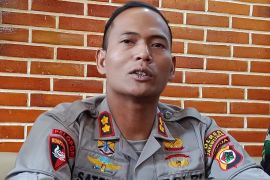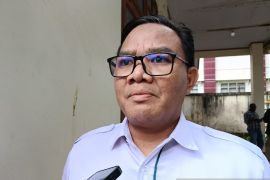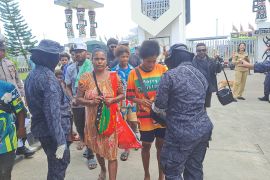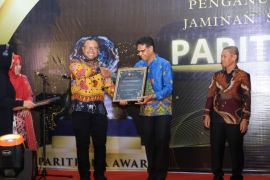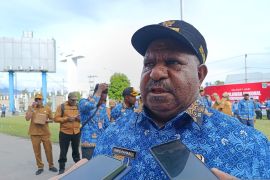The public ire, sparked by alleged racist slurs against Papuan students in Surabaya, East Java, on August 16, has again put Indonesia in the spotlight of global media organizations.
Benny Wenda, a Papuan separatist figure staying in the United Kingdom, attempted to gain traction out of this incident to expose his political agenda. A group of Papuan students, who staged rallies in Jakarta recently, also echoed the Free Papuan Movement's agenda.
The government has taken prompt measures to assuage public fury in the Indonesian provinces of Papua and West Papua, marked by acts of burning, vandalism, and looting during the local people's violent protests.
In order to restore law and order, several hundred police mobile brigade members from some provincial police headquarters were stationed to offer assistance to the law enforcement mission in the two provinces.
However, several parties believe that the security approach is inept at helping to tackle the root-cause of Papuan problems.
Incumbent President Joko Widodo (Jokowi) has hinted at his commitment to optimally tackling Papua’s issues. On Sept 3, Jokowi had lunch with several native Papuan figures, including village chiefs, from the Nduga and Yapen Islands Districts, Papua Province.
Deputy Chairman of the Indonesian Ulema Council (MUI) Zainut Tauhid Saadi too put his weight behind applying the approach of soft diplomacy that respects Papuan dignity.
Saadi has appealed to the government to tackle problems plaguing Papua and West Papua judiciously and resolve them in a comprehensive manner by encouraging socio-cultural dialog by involving religious, customary, and community leaders representing the people of Papua.
House of Representatives (DPR) Speaker Bambang Soesatyo also proposed dialog as a means of seeking a comprehensive solution to the Papuan issues.
This top politician of Golkar Party sought the government’s attention for getting respected figures from seven cultural areas of Papua involved in the dialog, held as part of what he termed a hearts and minds approach in resolving Papuan issues.
The seven cultural areas are Mamta/Tabi, Seireri, Bomberai, Doberai, Meepago, Haanim, and Lapago, he told participants at a discussion forum on finding ways to find a permanent solution to the Papua issues, held at Kompas Tower, Jakarta, on Friday.
The hearts and minds approach is a short-term solution essentially adopted by the government in its efforts to tackle Papuan issues.
The need for a dialog through the hearts and minds approach is quite apparent since the Papuan people are currently seeking the state and government's presence in the aftermath of the Surabaya incident.
Soesatyo suggested that each cultural area of Papua may sent three representatives.
Each cultural area must also have the representatives of the Papua People's Assembly (MRP), regional legislative council (DPRP), the Forkopimda (Regional Leadership Communication Forum), as well as religious, young, and female figures.
In the meantime, the middle-term solution concerns the government's affirmative actions by giving opportunities to native Papuans, meeting the requirements, to fill the echelon one and two positions at the ministries and government agencies.
Such affirmative action may also be applied in the Indonesian military and national police's recruitment policies.
He believes that holding prestigious positions in ministries, government agencies, as well as the military and police would be a matter of pride for Papuans and their big families.
It is also overdue for native Papuans to get opportunities to be part of the board of directors of the gold mining company, Freeport Indonesia, with majority of its shares, or 51 percent, being owned by the country.
State-owned enterprises and all companies operating in the provinces of Papua and West Papua should also apply similar affirmative policies for indigenous Papuans by employing them, he emphasized.
Such affirmative actions are expected to help end all forms of prejudice likely arising from maltreatments meted out to Papuans since long.
Soesatyo also highlighted a need for a policy on restricting the migration of non-native Papuan workers into Papua to prevent marginalization of native Papuans.
Related news: Hearts, minds approach instrumental in tackling Papuan issues: speaker
Soesatyo's perspectives on the significance of such affirmative actions raised the hopes of Chairperson of the Papuan Women's Solidarity (SPP) - Mimika Chapter Ros Namsa Kabes.
Kabes believes that the civil servant recruitment policies remain conducive for non-native Papuans.
"In the Mimika district administration, for instance, almost all strategic structural positions there are dominated by non-native Papuans; not those from the Amungme and Kamoro ethnic groups," she remarked.
To best handle this condition, the Mimika district government should send the children of Amungme and Kamoro ethnic groups to receive high-quality education, so that they become well-educated and are able to rise up the ranks to occupy strategic positions.
Speaking in connection with efforts to empower native Papuans on August 31, she suggested that the district government and legislative body should issue regulations safeguarding the interests of sellers of varied traditional goods, including areca nuts and sago, in order to offer protection to native Papuan merchants at traditional markets.
"Please protect the areca nut and sago sellers from indigenous Papuan communities. Do not let non-native Papuans also sell the same goods since locals cannot compete with them. If this can be managed well, Papuans do not want to do negative things," she explained.
With such affirmative protection initiatives, the district government is concerned about the fate of "mama-mama" (mothers) in Papua, as they give birth to members of the future Papuan generation, Kabes affirmed.
"These Papuan mothers must feel that they also belong to important parts of this country," she affirmed.
With better governmental care, the native Papuans can be shielded from being influenced by people propagating the ideology of separatism against Indonesia, she stated. Related news: Military, police chiefs meet figures of different faiths in Papua
Related news: Provocation to cause anarchy continues in Papua: Wiranto
EDITED BY INE
Editor: Fardah Assegaf
Copyright © ANTARA 2019
